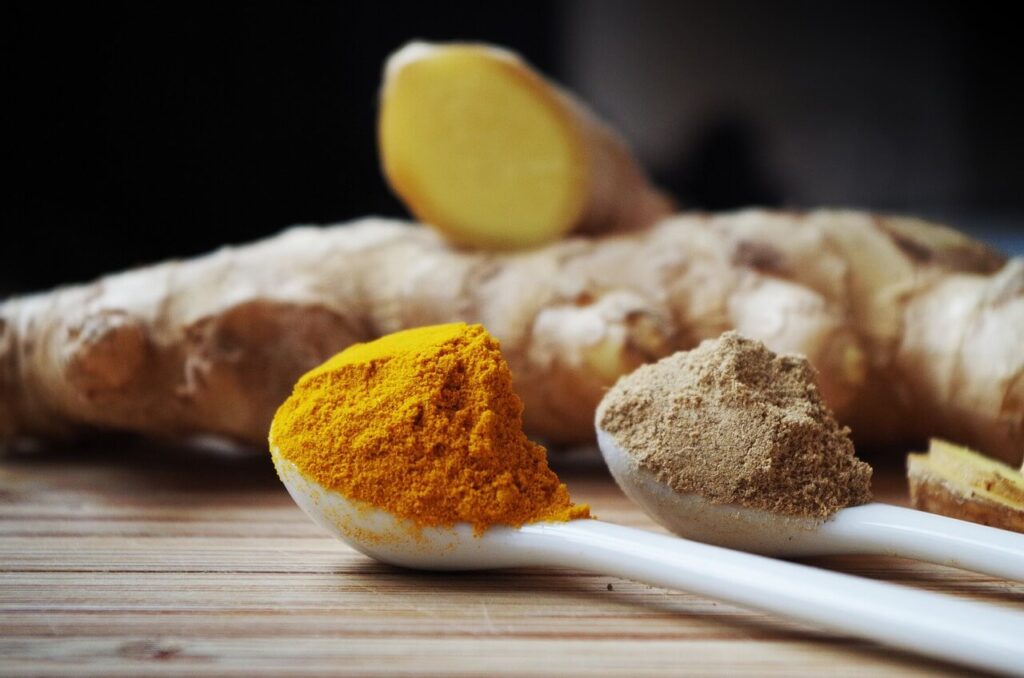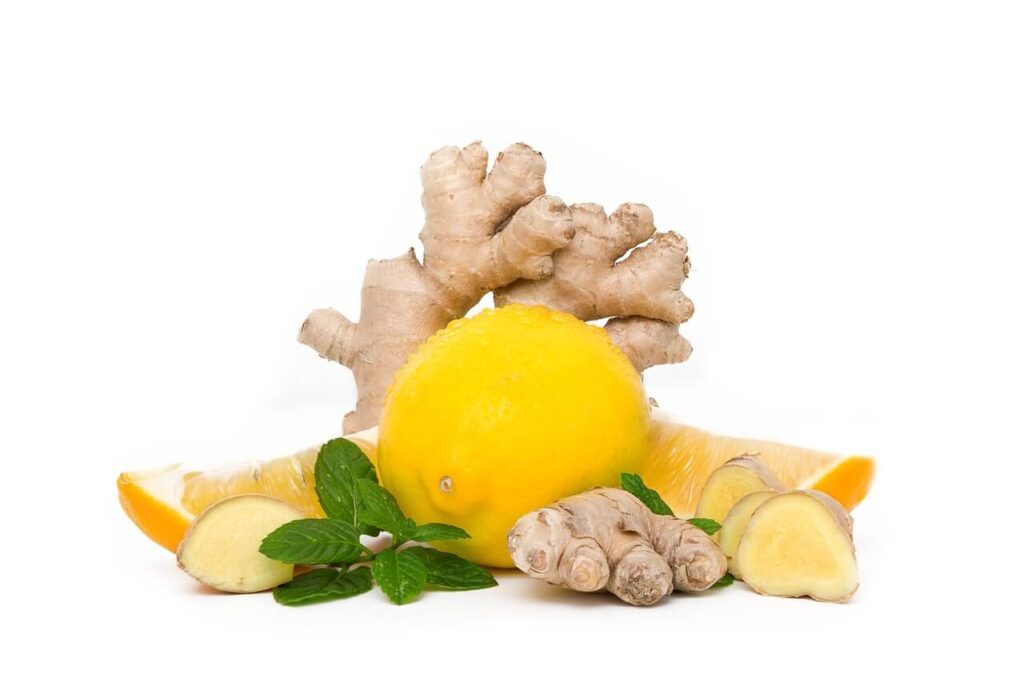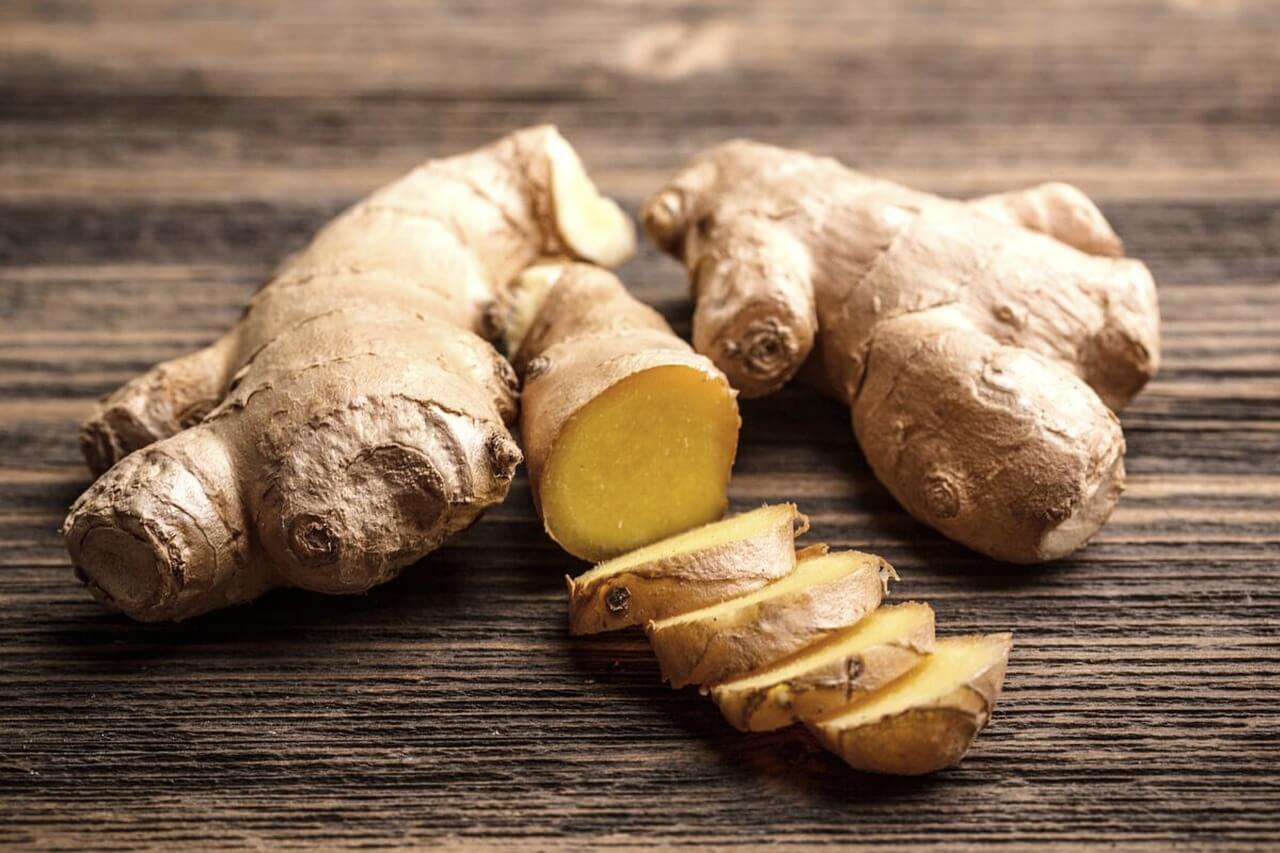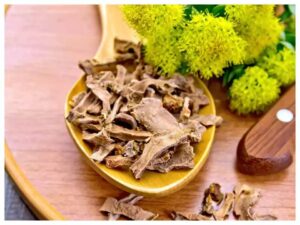Ginger is a popular spice that has been used for thousands of years for its medicinal properties and flavor. The root of the ginger plant is used for culinary and medicinal purposes, and has been found to have a wide range of health benefits. In this article, we will explore the benefits of ginger for health, the research supporting these benefits, its historical use in traditional medicine, its nutritional components, how it can be consumed, and potential side effects and precautions to consider.
Background on Ginger
Ginger, also known as Zingiber officinale, is a flowering plant that is native to Southeast Asia. It has been used for thousands of years in traditional medicine for its various health benefits and as a flavor enhancer in cooking. Ginger is a member of the Zingiberaceae family, which also includes turmeric and cardamom.
Discovery of Ginger
The exact date of ginger’s discovery is unknown, but it is believed to have been used in China for over 2,000 years. It was also one of the first spices to be traded between Asia and Europe, with references to ginger being found in ancient Greek, Roman, and Indian texts.
Spread of Ginger to the West
Ginger is believed to have been brought to the Western world by Arab traders, who introduced it to the Romans. The Romans then spread the use of ginger throughout Europe, where it became a popular spice in cooking and medicine. During the medieval period, ginger was one of the most sought after spices in Europe, and it was one of the main ingredients in the famous medieval spice blend, “electuarium”.
Use of Ginger in Traditional Medicine
In traditional medicine, ginger has been used to treat a variety of ailments, including nausea, indigestion, and inflammation. It was also used as a remedy for colds, flu, and other respiratory infections. The ancient Chinese used ginger for its warming and invigorating properties, and it was also believed to have aphrodisiac properties.
Modern Research on Ginger
In recent years, there has been a growing body of scientific research on the health benefits of ginger. Studies have shown that ginger has anti-inflammatory and antioxidant properties, and that it may help to reduce nausea, improve digestion, and alleviate menstrual pain. There is also evidence to suggest that ginger may help to lower blood sugar levels, reduce the risk of heart disease, and improve brain function.
Culinary Uses of Ginger
Ginger is widely used in cooking, particularly in Asian cuisines, where it is a staple ingredient in many dishes. It is used to add flavor to stir-fries, soups, stews, and marinades, and it is also used to make tea and other beverages. Ginger is also a popular ingredient in sweet dishes, such as gingerbread and ginger snaps.

The Health Benefits of Ginger: A Comprehensive Guide
Ginger, also known as Zingiber officinale, is a flowering plant that is widely used as a spice and traditional medicine in many parts of the world. Its distinct spicy and pungent flavor, as well as its numerous health benefits, make it a popular ingredient in many cuisines.
In this article, we will explore the various health benefits of ginger, backed by scientific research.
Nutritional Value of Ginger
Ginger is rich in several essential nutrients, including:
- Vitamins: Ginger contains vitamins B6 and C, which are essential for the proper functioning of the immune system, as well as vitamin E, a powerful antioxidant that protects the body against oxidative damage.
- Minerals: Ginger is a good source of minerals such as potassium, magnesium, phosphorus, and manganese, which play a crucial role in maintaining healthy bones, muscles, and organs.
- Phytochemicals: Ginger is rich in several bioactive compounds, including gingerol, shogaol, and paradol, which are responsible for its potent anti-inflammatory and antioxidant properties.
The Miraculous Consequences of Ginger on Health
Ginger, a root originating from Southeast Asia but now flourishing globally, such as in India, China, and the Caribbean, has been utilized for its therapeutic properties for ages. It has a rich history of alleviating digestive issues, discomfort, and inflammation, but recent discoveries indicate that it might possess a plethora of other health advantages as well.
Anti-Inflammatory Characteristics
Ginger boasts anti-inflammatory properties as one of its foremost benefits. Inflammation is a natural body reaction to injury or infection, but it also contributes to various chronic conditions like cancer, heart disease, and arthritis. Ginger has been observed to diminish inflammation by inhibiting the production of cytokines, which are inflammatory compounds. This feature makes ginger a beneficial treatment for conditions such as rheumatoid arthritis and osteoarthritis, where inflammation occurs in the joints.
Digestive Wellness
Ginger has a long history as a digestive aid, and for good reason. Studies have proven its efficacy in treating a range of digestive problems, including bloating, indigestion, nausea, and vomiting. Ginger stimulates the production of digestive enzymes and bile, which helps in breaking down food and absorbing nutrients efficiently. It also has a calming effect on the digestive system, reducing symptoms of indigestion and heartburn.
Pain Alleviation
Ginger has been used as a natural pain remedy for millennia, and modern research has confirmed its effectiveness. Ginger contains gingerols and shogaols, compounds with potent pain-relieving properties. These compounds are believed to work by inhibiting the production of prostaglandins, pain-causing compounds. Ginger has been demonstrated to be effective in reducing pain associated with menstrual cramps, headaches, and osteoarthritis.
Cardiovascular Health
In addition to its anti-inflammatory properties, ginger might have a positive impact on cardiovascular health. Ginger has been observed to lower blood pressure, reduce cholesterol levels, and improve circulation. These effects are believed to be due to the presence of gingerols and shogaols, compounds that have a beneficial effect on the cardiovascular system.
Cancer Deterrence
There is some evidence to suggest that ginger might have potential as a cancer-fighting agent. Ginger has been observed to have antiproliferative effects, meaning it can slow down the growth of cancer cells. It has also been observed to have a protective effect against oxidative stress, which is a significant contributor to cancer development. Although more research is necessary in this field, the results so far are promising and indicate that ginger might play a role in cancer prevention and treatment.
Immune System Enhancement
Ginger has been observed to have a positive impact on the immune system. It has been shown to increase the production of white blood cells, the body’s primary defense against infection and disease. Ginger has also been observed to have antiviral and antibacterial properties, making it a useful remedy for colds and flu.
Brain Fitness
In addition to its physical health benefits, ginger might have a positive impact on brain health. Ginger has been observed to improve memory and cognitive function and to have a protective effect against age-related cognitive decline. These effects are believed to be due to the presence of gingerols and shogaols, compounds that have a positive impact on brain function.
How to Incorporate Ginger into Your Diet
There are many ways to incorporate ginger into your diet, including:
- Adding fresh ginger to smoothies or juices
- Grating fresh ginger into stir-fries, soups, or curries
- Drinking ginger tea
- Using ginger powder or ginger extract in cooking or baking
- Eating crystallized ginger as a snack

Research Studies Supporting the Health Benefits of Ginger
There is a growing body of scientific evidence that supports the health benefits of ginger. Here are a few examples of recent research studies:
- A study published in the Journal of Pain found that ginger can reduce muscle pain by 25% after exercise.
- A review of 12 studies published in the European Journal of Gastroenterology and Hepatology found that ginger can be effective for relieving nausea and vomiting, particularly in early pregnancy.
- A study published in the British Journal of Nutrition found that consuming ginger can improve insulin sensitivity and regulate blood sugar levels in people with type 2 diabetes.
- A study published in the Journal of Headache and Pain found that ginger can be effective for treating headaches and migraines, with results similar to over-the-counter pain medication.
Historical Use of Ginger in Traditional Medicine
Ginger has a long history of use in traditional medicine, dating back thousands of years in countries like India, China, and ancient Greece. In traditional Chinese medicine, ginger was used to stimulate the digestive system, reduce inflammation, and treat various other ailments. In ancient Greece, ginger was used as a natural remedy for digestive problems and as a treatment for arthritis and other inflammatory conditions.
The Nutritional Components and Core Ingredients of Ginger
Ginger is a nutrient-dense food that is low in calories and high in a variety of vitamins, minerals, and other beneficial compounds. Some of the most important nutritional components of ginger include:
Fiber
Ginger is a good source of fiber, which is important for digestive health and weight management. Fiber helps to slow down digestion, making you feel full for longer, and it also helps to prevent constipation and other digestive problems.
Manganese
Ginger is a good source of manganese, which is an essential mineral that is involved in a variety of important processes in the body. Manganese is important for healthy bones, wound healing, and metabolism, and it also acts as an antioxidant, helping to protect against damage caused by free radicals.
Potassium
Ginger is also a good source of potassium, which is an important mineral that helps to regulate fluid balance, blood pressure, and heart function. Potassium is also important for muscle and nerve function, and it is essential for good overall health.
Vitamin B6
Ginger is a good source of vitamin B6, which is an essential vitamin that is involved in a variety of important processes in the body. Vitamin B6 is important for immune system function, hormone regulation, and brain function, and it is also involved in the synthesis of neurotransmitters, such as serotonin and dopamine.
Core Ingredients of Ginger
In addition to its various vitamins and minerals, ginger is also a rich source of a variety of beneficial compounds, including:
Gingerols and Shogaols
Gingerols and shogaols are compounds found in ginger that are responsible for its characteristic flavor and aroma. These compounds also have a variety of health benefits, including anti-inflammatory, antioxidant, and pain-relieving properties.
Essential Oils
Ginger is also a rich source of essential oils, including zingiberene, beta-phellandrene, and gingerols. These oils are responsible for the flavor and aroma of ginger, and they also have a variety of health benefits, including anti-inflammatory, antioxidant, and digestive properties.
Phenols
Ginger is also a rich source of phenols, which are compounds that have a variety of health benefits, including antioxidant and anti-inflammatory properties. Phenols are also important for heart health, and they have been shown to reduce the risk of heart disease and stroke.


Methods for Consuming Ginger
Ginger can be consumed in several forms, including fresh, powdered, dried, pickled, or as juice or oil. Here are some of the most common ways to consume ginger:
- Fresh Ginger: Fresh ginger root is commonly used in cooking, particularly in Asian and Indian cuisine. It can be grated, minced, or thinly sliced and added to dishes such as stir-fries, soups, and curries.
- Ginger Tea: Ginger tea is made by simmering sliced or grated ginger root in boiling water for several minutes. It is a warm and comforting drink that is believed to soothe the digestive system and help with nausea and motion sickness.
- Ginger Supplements: Ginger supplements are available in capsule, tablet, and powder form. They can be found in most health food stores and are usually standardized to contain a certain amount of gingerols and shogaols, the active compounds in ginger.
- Ginger Juice: Ginger juice can be extracted from fresh ginger root using a juicer. It is often mixed with other fruits and vegetables to make a nutritious and refreshing drink.
- Ginger Essential Oil: Ginger essential oil is extracted from the root and is used for aromatherapy and massage. It has a warm and spicy scent and is believed to have anti-inflammatory and pain-relieving properties.
Regardless of the form, it is important to use high-quality ginger products that are free of additives and preservatives. Additionally, before taking any new supplement, it is always recommended to speak with a healthcare professional to ensure safety and proper usage.
Dosage Guidelines for Ginger
The optimal dosage of ginger varies based on the intended use and the form in which it is consumed. As a general rule, 2 to 4 grams of fresh ginger or 1 to 3 grams of dried ginger powder can be consumed daily. For nausea and vomiting, a dose of 1 gram of ginger powder can be taken up to 4 times a day. For osteoarthritis, a dose of 250 milligrams of ginger extract can be taken twice daily.
Ginger supplements are also available in the form of capsules, tablets, and liquids. It is important to follow the manufacturer’s recommended dosage guidelines, as the potency of ginger supplements can vary greatly. Additionally, it is recommended to speak with a healthcare professional before taking ginger supplements to determine the most appropriate dose for individual needs and health status.
Folk Remedies that Use Ginger
Ginger has a long history of use in traditional medicine for a variety of health conditions. Some of the most well-known traditional remedies that use ginger include:
- Stomach problems: Ginger has been used to soothe an upset stomach, improve digestion, and reduce bloating.
- Motion sickness: Ginger has been used to reduce symptoms of motion sickness, such as dizziness and nausea.
- Inflammation: Ginger has been used to reduce inflammation and relieve pain in conditions such as osteoarthritis and rheumatoid arthritis.
- Colds and flu: Ginger has been used as a natural remedy for colds and flu, as it is believed to help boost the immune system and reduce symptoms such as congestion and coughing.
Find out the recipes of ginger tea here
Potential Side Effects and Precautions to Consider when Using Ginger
Ginger is generally considered safe when consumed in moderate amounts. However, it can cause some side effects in some people, including:
- Stomach upset: Ginger can cause stomach discomfort, including gas and bloating, especially when consumed in large amounts.
- Heartburn: Ginger can cause heartburn in some individuals, especially if taken on an empty stomach.
- Blood thinning: Ginger can interact with certain blood-thinning medications, such as warfarin, increasing the risk of bleeding.
- Pregnancy and breastfeeding: Ginger should be used with caution during pregnancy and breastfeeding, as its safety in these populations has not been well established.
It is recommended to speak with a healthcare professional before consuming ginger supplements or using ginger for medicinal purposes, especially if taking medications or dealing with a chronic health condition.
- Ginger – Wikipedia: https://en.wikipedia.org/wiki/Ginger
- WebMD: Ginger: https://www.webmd.com/vitamins/ai/ingredientmono-961/ginger
- National Center for Complementary and Integrative Health: Ginger: https://nccih.nih.gov/health/ginger
- American Cancer Society: Ginger: https://www.cancer.org/treatment/treatments-and-side-effects/complementary-and-alternative-medicine/herbs-and-supplements/ginger.html






